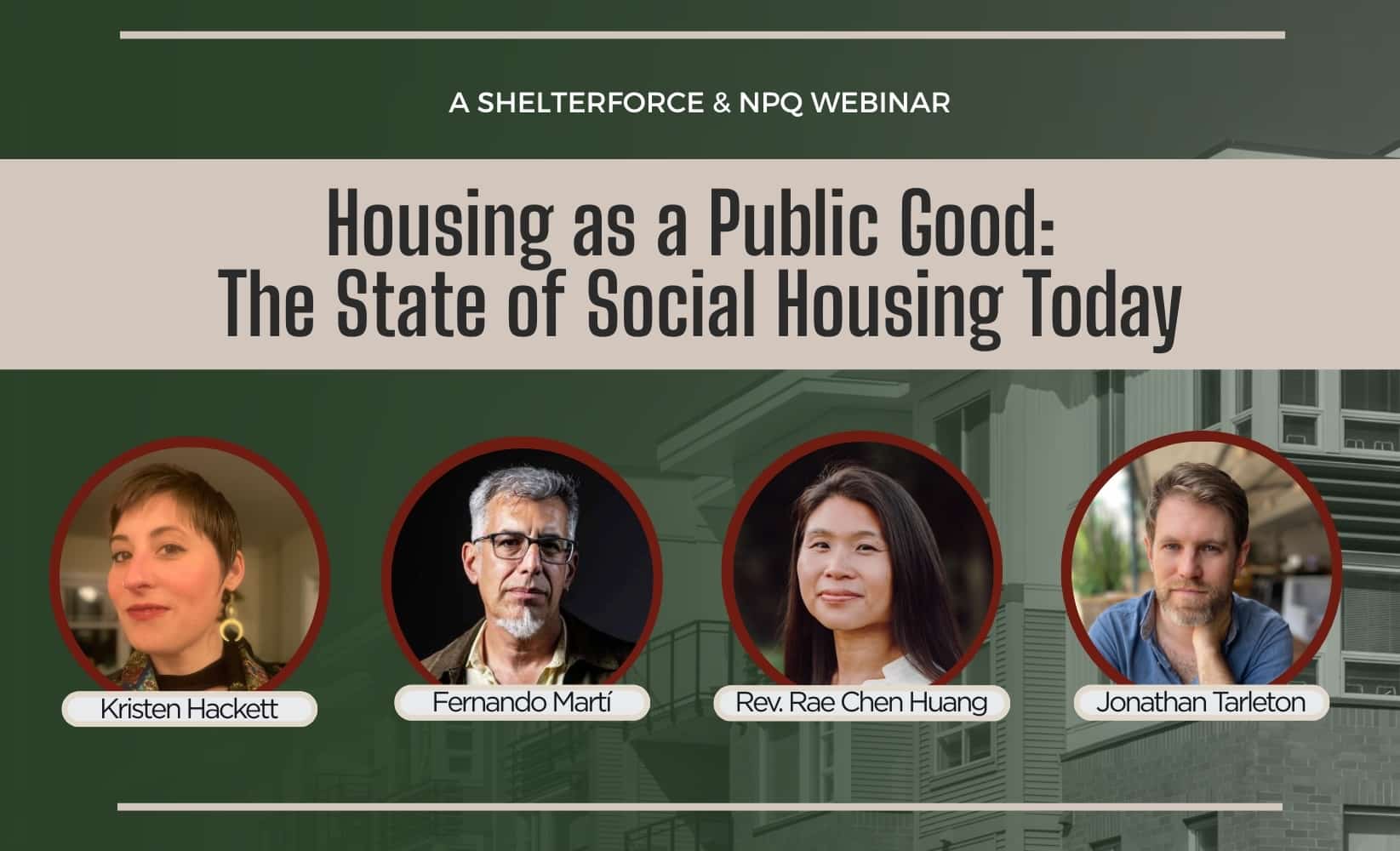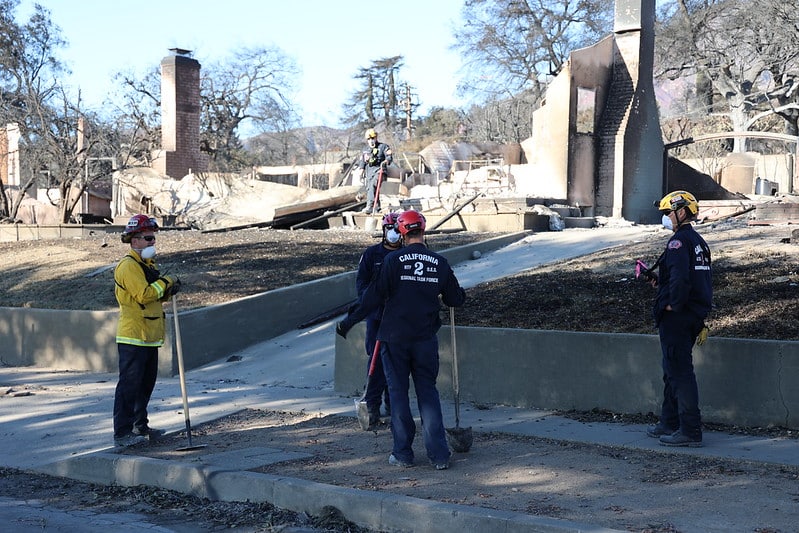Editor’s Note: Want to know what passed, what was rejected, and what to expect next? We followed up with all these ballot measures in “Where Housing Won and Lost in the 2024 Election.”
There are dozens of housing-related ballot measures up for vote in Tuesday’s general election. We’ve tracked down 11 statewide and almost two dozen local and county measures that have some connection to housing.
On the local level, some voters are being asked to approve funding or new taxes to support affordable housing efforts, while in other cities, voters are deciding whether hard-fought for tenant protections and rent control measures should continue. For instance, in New Jersey, Hoboken residents will decide whether landlords can pay a one-time $2,500 fee so their units will not be subject to the city’s rent control law and its related protections.
One of the bigger state measures is Prop 33 in California, where voters in the Golden State will decide whether their local governments can impose rent controls. If passed, Prop 33 would repeal the Costa-Hawkins Rental Housing Act, which prevents cities from enacting certain local rent control regulations.
Below, we’ve broken down the housing measures we found by state, along with some helpful additional reading. Is there something we’ve missed? Let us know in the comments.
Arizona
Statewide
Proposition 312—Voters will decide whether property owners can apply for an annual tax refund if their municipality doesn’t enforce anti-encampment rules. Read more in AZ Central.
California
Statewide
- Proposition 33—If approved, cities and counties will be allowed to limit rent on all housing, repealing the Costa-Hawkins Rental Housing Act, which prohibits rent control on many properties in the state. Read more in Cal Matters.
- Prop 5—If voters approve this measure, local bonds could be approved to fund affordable housing, supportive housing, or public infrastructure initiatives.
- Prop 34—The “Protect Patients Now Act” looks like a health care reform measure, but according to KCRW, it’s really a battle over the state’s rent control laws—specifically, the AIDS Healthcare Foundation, which financially supports rent control measures like Prop 33.
County Level
Los Angeles County: Measure A—If approved by voters, this measure would raise a little more than $1 billion (!) per year for housing and homelessness efforts by increasing an existing sales tax to 1/2 cent per dollar. Read more in LAist.
Local Level
San Francisco, CA: Prop G—If approved, the city will start a new affordable housing fund with at least $8.25 million for rental subsidies for seniors, families, and people who have disabilities. Read more here.
Berkeley, CA:
- Measure BB—If passed, renters in Berkeley will get a slew of tenant protections. Landlords would be limited to an annual rent increase of 5 percent, they would face new requirements for filing evictions, and more.
- Measure CC—A competing measure, sponsored in part by the Berkeley Property Owners Association, would direct a portion of taxes on rental properties to landlords whose tenants are struggling to pay rent, prohibit evictions for nonpayment of rent if less than one month’s rent is owed, and more. Check out Berkeleyside for more on Measure BB and Measure CC.
Fairfax, CA: Measure I—A ‘yes’ vote would overturn the town’s rent control and just-cause eviction laws. The town council has urged voters to vote against the measure.
Oroville, CA: Measure N—Voters will decide whether the Housing Authority of the County of Butte can build a low-income housing project, with 18 low- and very-low-income units.
San Anselmo, CA: Measure O—If approved, the measure will grant renters certain just-cause eviction protections, including requiring that landlords with three or more units provide tenants with more notice before filing an eviction, and, in some cases, pay for a tenants’ relocation costs.
South Lake Tahoe, CA: Measure N—If voters pass this vacancy tax, homeowners who don’t live in their properties for half the year would be required to pay thousands of dollars—$3,000 the first year and up to $6,000 for subsequent years. The fee could bring in up to $10 million a year, which proponents of the measure want to spend on building housing, according to The Sacramento Bee.
Colorado
Statewide
House Concurrent Resolution 23-1002—Voters will decide whether the state should increase the number of veterans who can access property tax exemptions. Now, only disabled veterans with a “100 percent permanent disability” receive exemptions, but if voters approve the resolution, veterans with “individual unemployability status” will also qualify.
County Level
Pitkin County: Question 1A—If voters approve this measure, a new property tax will generate $8.5 million each year for the next 25 years for affordable housing efforts in the county. The monies can be used to attract and retain essential workers, preserve and build affordable housing, and more. Read more in the Aspen Daily News.
Local Level
City of Aspen:
- Issue 2A—If Aspen voters agree, two existing taxes that fund affordable housing and transportation initiatives will be extended.
- Issue 2B—If approved, an existing sales tax dedicated to affordable housing and child care efforts in the city will be extended. Learn more about Issue 2B and Issue 2A in The Aspen Times.
Denver: Ballot Issue 2R—If passed, an increased sales tax would bring in $100 million a year for affordable housing efforts, including downpayment assistance and funds for low- and moderate-income renters in Denver. Officials says it could generate 40,000 affordable housing units in the next decade, according to The Colorado Sun.
More Election Coverage From Shelterforce
Housing Groups Weigh in on Harris’s and Trump’s Housing Plans—How well do the presidential candidates’ proposals address the growing housing crisis? Housing advocacy groups share their thoughts and criticisms of the plans (or lack thereof).
Where the Harris, Trump Campaigns Stand on Housing—Here’s how each candidate has responded to (or ignored) five key housing issues: low supply, accessible homeownership, tenant protections, rent control, and homelessness.
How Project 2025 Would Dismantle HUD—What are the HUD administration and policy changes outlined in Chapter 15? Which ones are particularly alarming? And, most importantly, how likely is it that some, most, or even all the recommendations will be put in place?
Housing in the Next Election, a Facebook Live Event—We chat with Housing Narrative Lab’s Marisol Bello about the general election and how housing advocates can better tell their stories, no matter the outcome of the election.
Florida
Statewide
Amendment 5—This amendment would adjust a property tax exemption to inflation, decreasing taxes for homeowners. But the changes could increase taxes on other groups, including renters and landlords. Read more in The Phoenix.
County Level
Orange County: Charter Amendment 2— Voters are being asked whether they want to keep an Affordable Housing Trust Fund the county created in 2020.
Local Level
Miami, Florida: Referendum 2—Should Miami sell or lease its land to developers? Voters are being asked to approve the sale and/or lease of acres of land on Watson Island to a joint venture group. The proposed plan would create condos, commercial property, and a city park on the island. As part of the deal, according to the Miami Herald, developers would be required to contribute $24 million for affordable housing and infrastructure in the city.
Bal Harbour, Florida: Bal Harbour Referendum—Miami-Dade County levies a 1 percent food and beverage sales tax to raise funds for homelessness services, housing, and domestic violence centers. Bal Harbour voters are being asked whether the village should participate. In an interesting turn of events, Miami Beach voters were expected to cast a ballot on a similar measure, but yesterday—less than a week before the vote—the Miami Beach City Commission rescinded the question. Read all about it in the Miami Herald.
Georgia
Statewide
Amendment 1—Voters will decide whether the state should introduce a Homestead Property Tax Exemption. For folks who meet certain criteria, including owning and occupying their home, property taxes can only go up with inflation, even if the home’s value increases more quickly. Read more about this in the Associated Press.
Louisiana
Local Level
New Orleans: Parishwide Home Rule Charter Amendment Proposition No. 1—Voters will decide whether New Orleans should set up a new affordable housing fund. If approved, the city will be required to budget 2 percent of its general fund annually for the housing trust fund. Supporters say that would come out to roughly $17 million in local funds a year, the largest investment of its kind, according to WWNO.
Maine
Local Level
Portland, ME: Question 2—Voters will weigh in on whether they want to amend the city’s short-term rental registration requirements. According to the Maine Wire, if passed, homeowners who rent their homes for periods of 30 days or less would be required to provide both identification and proof of homestead exemption. Owners of short-term rentals on Peaks Island would also be required to specify and verify whether the unit is seasonal or year-round.
Maryland
Local Level
Baltimore, MD: Question A—If approved, the city will borrow up to $20 million for affordable housing production and preservation, as well as property demolition, relocation of residents, housing counseling, and the Affordable Housing Trust Fund.
New Jersey
Local Level
Hoboken, NJ: Referendum question—If passed, landlords can pay a one-time $2,500 fee and their housing units would be exempt from rent control restrictions. Those funds would go to an Affordable Housing Trust Fund. A “no” vote would maintain the city’s current rent control code. Read more on Patch.com.
New Mexico
Statewide
Constitutional Amendment 2—A “yes” vote increases the property tax exemption for veterans to $10,000, up from $4,000. It would adjust with inflation.
County Level
Bernalillo County: Public Housing Bond Measure—Voters will decide whether to allow the county to issue $1.7 million in bonds to remodel and improve public housing facilities.
North Carolina
Local Level
Charlotte, NC: Housing Bond Measure—Voters will decide whether to allow the city to issue $100 million in bonds to fund low- and moderate-income housing.
North Dakota
Statewide
Measure 4: This is an interesting one. Voters are being asked to vote on a measure that, if approved, would make North Dakota the first state to repeal property taxes on the assessed value of a home, according to Kiplinger.
Rhode Island
Statewide
Question 3—If approved, the state will issue $120 million in bonds for affordable housing and homeownership efforts. Read more on Rhode Island PBS.
Wyoming
Statewide
Wyoming Property Tax on Residential Property and Owner-Occupied Primary Residences Amendment—This would creates a new property class for “residential real property,” ultimately for the purpose of lowering taxes on owner-occupied, primary homes. Learn more on WyoFile.
Additional reporting by Lara Heard, Shelby R. King, and Miriam Axel-Lute.




Comments